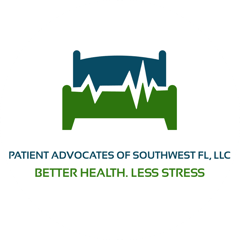There’s a Lot of Flu Out There
Posted on December, 2022
According to the CDC, flu activity is elevated across the country, and flu hospitalization rates are the highest we have seen at this time in a decade. Care partners often ask for advice about how to prepare, in term of what to have on hand and readily available for a visit to the doctor’s office or trip to the Emergency Room (ER) or Urgent Care. These following suggestions are suggested by colleagues of The Care Partner Project and patient advocates across the country:
According to the Centers for Disease Control and Prevention's FluView report, flu activity is elevated across the country, and flu hospitalization rates are the highest we have seen at this time in a decade. Hospitalization rates are highest among adults 65 years or older, followed by children younger than 5 years.
Care partners, those caring for the health and medical needs and concerns of a beloved family member or dear friend, often ask for advice about how to prepare, in term of what to have on hand and readily available for a visit to the doctor’s office or trip to the Emergency Room (ER) or Urgent Care. [i]
These following suggestions are suggested by colleagues of The Care Partner Project and patient advocates across the country:
For any visit to a medical provider, including the ER, be sure to bring along 2 or more copies of the following important documents:
- Insurance card (front and back).
- Up-to-date list of medications, including vitamins, drug-store.
- Record of alcohol, tobacco and recreational drug use (no one will judge – this is important).
- List of recent shots and immunizations, with dates given.
- Medical Power of Attorney (POA).
- Advanced Directives.
- List of all doctors who treat your loved one, with their contact info.
- List of all recent hospitalizations with dates, reasons for admission and outcomes.
- List of all surgeries your loved one has ever had, dates of each.
Notebook and pen.
Be sure too should also bring the following for an Emergency Room or Urgent Care Center visit:
- Medical records (in addition to those items previously listed) of current and prior health care conditions. Bring CDs with any scans performed (EKG, CAT, MRI).
- Medications - put all your loved one’s medications in a baggie and bring.
Note: You may have a long wait – remember to bring medications your loved one may need to take while you are waiting.
Also consider bringing favorite personal comfort items for your loved one, particularly if s/he may become restless due to anxiety or dementia:
- A favorite sweet treat? Religious item?.
- A warm sweater, neck scarf or hat.
- Bottles of water – keeping your loved one hydrated and warm is key. Include
powder packs of Gatorade too.
- Healthy snacks like little packs of nuts, granola bars, protein bars.
- A light blanket (the kind you get on the airline is a good example – folds up compactly but offers warmth).
- Items to help quell anxiety. These might include:
Fidget-widget
Headphones and favorite or soothing music on phone/iPad
Noise cancelling headphones
Contact list of others to call for help (If stored on your phone, organize in group/s so you can find quickly (I.e., Dad’s Doctors, Mom’s Neighbors)
Sunglasses to shield eyes from fluorescent lights in hospital Antibacterial hand cleaner, such as Purell.
Antibacterial surface wipes.
Your chargers for phone or other electronics you bring.
I and my patient advocate colleagues further advise clients to create a “Grab & Go “ Kit - a backpack or tote with the non-paper items that can be stored in a ready-to-go location. For me, it’s the laundry room which is adjacent to the garage. In a cloth bag I store paper documents in a 2 section, 3-ring notebook (one for myself and one for my husband). Insurance card, photo ID. Medical Power of attorney in one section, with the remainder in another section.
Should your loved one be admitted to the hospital, I also recommend using The Care Partner Project’s, Hospital Stay checklists (Hospital Stay Checklists - The Care Partner Project) and The Beers List of Medications.



